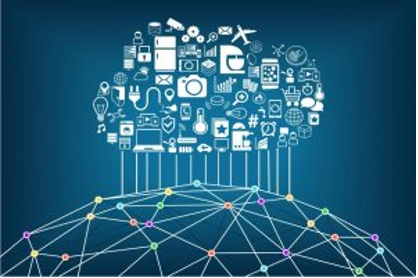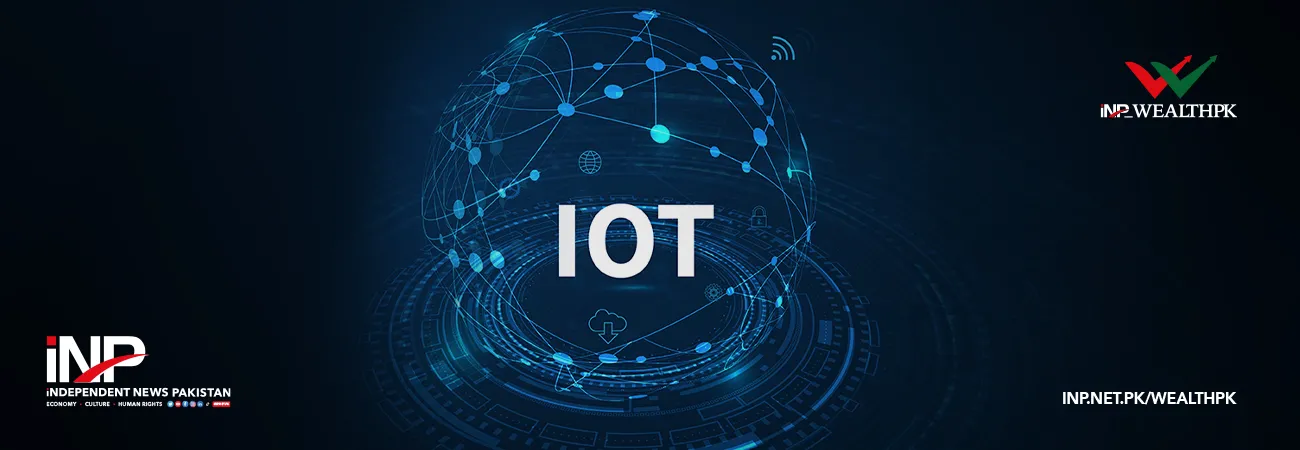INP-WealthPk
Muhammad Luqman
The Internet of Things (IoT), a key pillar of the Fourth Industrial Revolution, is transforming the way people interact with technology across the globe — and Pakistan is no exception. Despite infrastructure challenges, IoT is showing strong signs of growth, particularly in urban centres like Lahore, Islamabad, and Karachi, where increasing numbers of people are integrating smart technologies into their daily lives. From smart homes to agriculture and industry, IoT is helping people to create a more connected and efficient future.

Homeowners are increasingly turning to IoT devices to remotely control lighting, security systems, temperature, and appliances using smartphones or voice assistants. These smart solutions offer not only convenience but also enhance energy efficiency and home security.
"I no longer switch on or off appliances like the refrigerator, air conditioners, or television manually or with a remote control. I control all these appliances through my smartphone connected via IoT," said Abdullah Dawood, an electrical engineer living in Lahore’s upscale WAPDA Town.
Abdullah, who works with a solar power firm, said that IoT also allows him to monitor electricity consumption and estimate bills well before they are generated by the power distribution company.
According to IT experts, the increasing penetration of the internet and smartphones has made it easier for urban consumers in Pakistan to adopt and benefit from IoT-based solutions.
However, they cited high infrastructure costs as a major barrier to widespread adoption in Pakistan.
"High initial investment and currency fluctuations make importing IoT hardware and solutions expensive," said Zulqarnain Ansari, an IoT expert and chief executive officer of an IT company in Lahore.
Talking to WealthPK, he suggested that a comprehensive IoT policy or national strategy is urgently needed to encourage large-scale adoption. "Currently, those working in the innovation space must rely entirely on their own resources and face significant limitations," Ansari said.
He emphasised that cybersecurity and user data privacy become critical concerns, calling for adequate measures to address these issues. He added that Pakistan could adopt cybersecurity models from developed countries to ensure safe and secure deployment.
Ansari also noted that IoT usage in agriculture is gaining traction globally as a tool for smart farming. While urban centres show promising trends, he pointed out that rural areas in Pakistan have yet to fully benefit from IoT technology.
“The digital divide between urban and rural populations is causing slow adoption,” he said. Smart agriculture experts argued that the government should introduce comprehensive regulatory policies for IoT-controlled farming tools to facilitate wider adoption among farmers.
"IoT-based sensors are being used worldwide for smart irrigation, soil moisture monitoring, and weather forecasting. But due to high initial costs, the adoption rate among Pakistani farmers remains low," said Muhammad Asim, a Lahore-based smart agriculture expert, while talking to WealthPK.
He explained that IoT can help farmers monitor soil health, water levels, and crop conditions in real time, making farming more efficient and sustainable.
However, he noted that the use of IoT-enabled agricultural drones and robots in Pakistan is negligible due to the absence of a specific policy framework. “IoT must now be incorporated into any future agricultural development agenda,” Asim said.
Credit: INP-WealthPk









